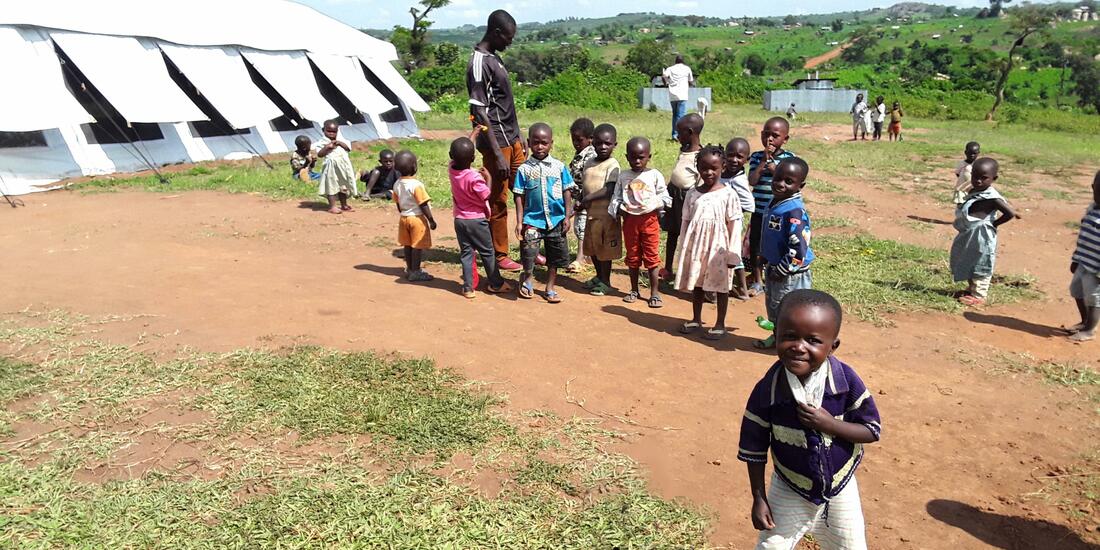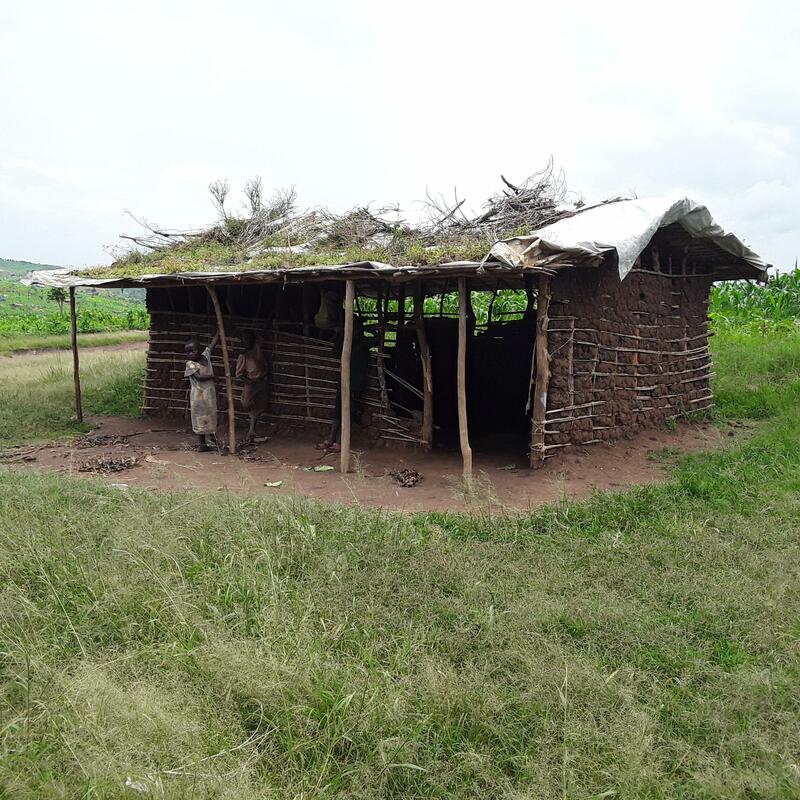|
Kyaka II refugee settlement, close to the border of the Democratic Republic of Congo (DRC), has approximately 700 new arrivals each week over 65% of which are children. Having fled armed conflict, ebola, and horrific human rights abuses, many suffer extreme trauma as a result of witnessing the brutality of war and displacement. They face serious child protection risks and have nowhere safe to go during the day. The youngest refugee children need support A number of NGOs are providing primary education in Kyaka II, but early years education provision is limited for the youngest children, at a vital time in their development. Our assessment showed a need for up to 30 Early Childhood Development (ECD) Centres across 30 communities within the settlement. In these communities, local people are doing the best they can to provide early years learning, but provision and resources are variable at best. While some communities are doing well, with Centres in a relatively good state of repair, others have non-existent provision and broken down venues that are not fit for purpose. Many Centres lack consistent quality teacher training, or well established community ownership. Without this, trained teachers have no incentive to use their training locally, and leave to find jobs in other areas of Uganda, and communities have no support or resources to maintain provision. Resourcing communities to provide early years education Through training and targeted resourcing, we aim to support 30 refugee communities in Kyaka II camp, to replicate our model of best practice, ensuring high quality, cost effective ECD for their children. Our Centres will be safe spaces for an estimated 4,000 Congolese refugee children aged 3-6. Over three years, working with YIDA (Youth Initiative for Development in Africa), we will train 150 local refugees to teach, ensuring children are learning in their own language with familiar trusted adults who have been through similar experiences. Children will be able to access early childhood education, trauma care, play and key health interventions, ensuring they have the best possible start in life.
In the following two years work will be replicated and buildings refurbished until all 30 communities are resourced to provide high quality early learning opportunities for their children.
The focus of the project is equipping communities with the skills to run high quality centres so, should the situation improve in DRC, they will be able to replicate these centres when they return home. Support usComments are closed.
|
RECEIVE OUR EMAILSBlog Categories
All
Archives
July 2024
|
|
JOIN US ON SOCIAL MEDIA
|
Annual Report | Contact Us | Jobs | Media Centre | Resources | Shop
Accessibility & Policies: Accessibility | Equity, Diversity & Inclusion Policy | Complaints| Privacy Policy | Safeguarding
Accessibility & Policies: Accessibility | Equity, Diversity & Inclusion Policy | Complaints| Privacy Policy | Safeguarding
Children on the Edge, 5 The Victoria, 25 St Pancras, Chichester, West Sussex, PO19 7LT, UK | 01243 538530 | [email protected]




 Give monthly
Give monthly Fundraise for us
Fundraise for us RSS Feed
RSS Feed
